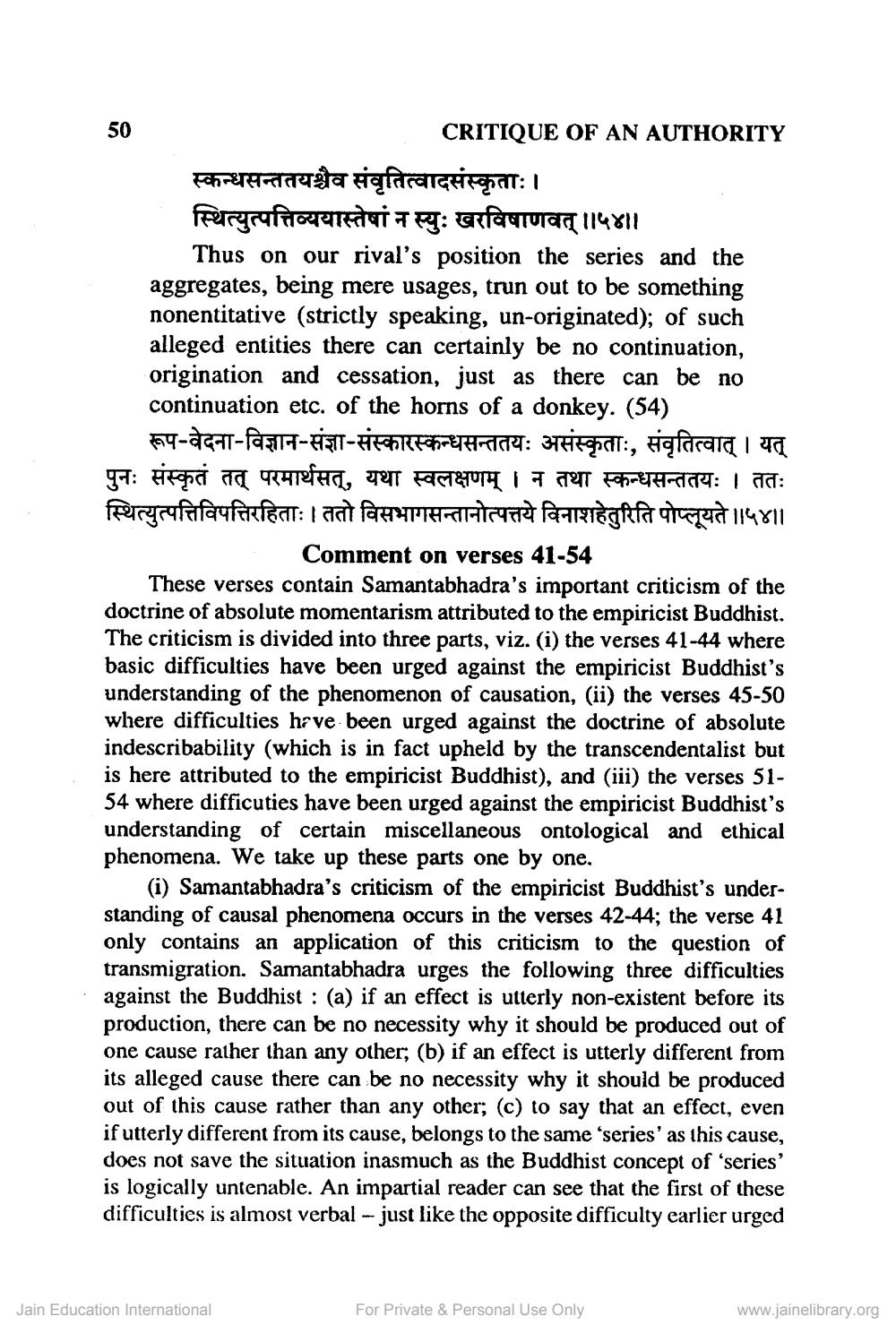________________
50
CRITIQUE OF AN AUTHORITY स्कन्धसन्ततयश्चैव संवृतित्वादसंस्कृताः । स्थित्युत्पत्तिव्ययास्तेषां न स्युः खरविषाणवत् ॥५४॥
Thus on our rival's position the series and the aggregates, being mere usages, trun out to be something nonentitative (strictly speaking, un-originated); of such alleged entities there can certainly be no continuation, origination and cessation, just as there can be no continuation etc. of the horns of a donkey. (54)
रूप-वेदना-विज्ञान-संज्ञा-संस्कारस्कन्धसन्ततयः असंस्कृताः, संवृतित्वात् । यत् पुनः संस्कृतं तत् परमार्थसत्, यथा स्वलक्षणम् । न तथा स्कन्धसन्ततयः । ततः स्थित्युत्पत्तिविपत्तिरहिताः। ततो विसभागसन्तानोत्पत्तये विनाशहेतुरिति पोप्लूयते॥५४।।
Comment on verses 41-54 These verses contain Samantabhadra's important criticism of the doctrine of absolute momentarism attributed to the empiricist Buddhist. The criticism is divided into three parts, viz. (i) the verses 41-44 where basic difficulties have been urged against the empiricist Buddhist's understanding of the phenomenon of causation, (ii) the verses 45-50 where difficulties have been urged against the doctrine of absolute indescribability (which is in fact upheld by the transcendentalist but is here attributed to the empiricist Buddhist), and (iii) the verses 5154 where difficuties have been urged against the empiricist Buddhist's understanding of certain miscellaneous ontological and ethical phenomena. We take up these parts one by one.
(i) Samantabhadra's criticism of the empiricist Buddhist's understanding of causal phenomena occurs in the verses 42-44; the verse 41 only contains an application of this criticism to the question of transmigration. Samantabhadra urges the following three difficulties against the Buddhist : (a) if an effect is utterly non-existent before its production, there can be no necessity why it should be produced out of one cause rather than any other; (b) if an effect is utterly different from its alleged cause there can be no necessity why it should be produced out of this cause rather than any other; (c) to say that an effect, even if utterly different from its cause, belongs to the same 'series' as this cause, does not save the situation inasmuch as the Buddhist concept of 'series' is logically untenable. An impartial reader can see that the first of these difficulties is almost verbal - just like the opposite difficulty earlier urged
Jain Education International
For Private & Personal Use Only
www.jainelibrary.org




